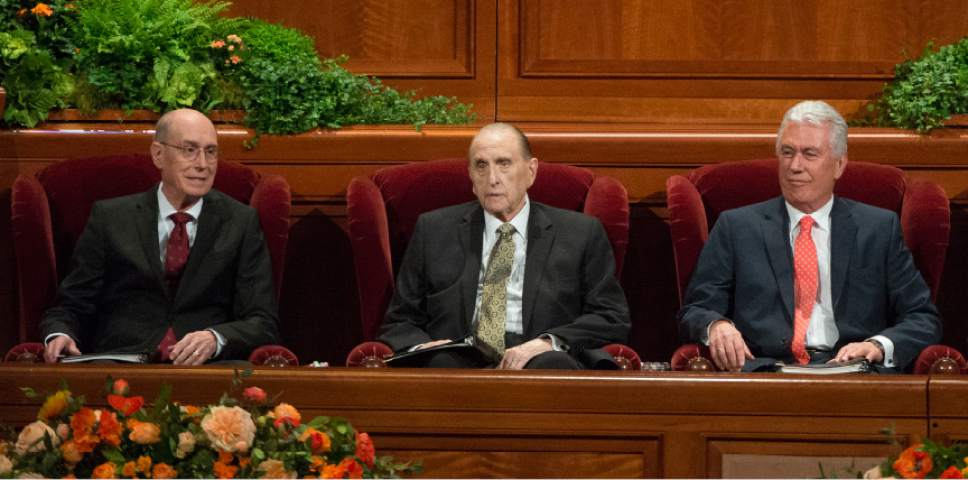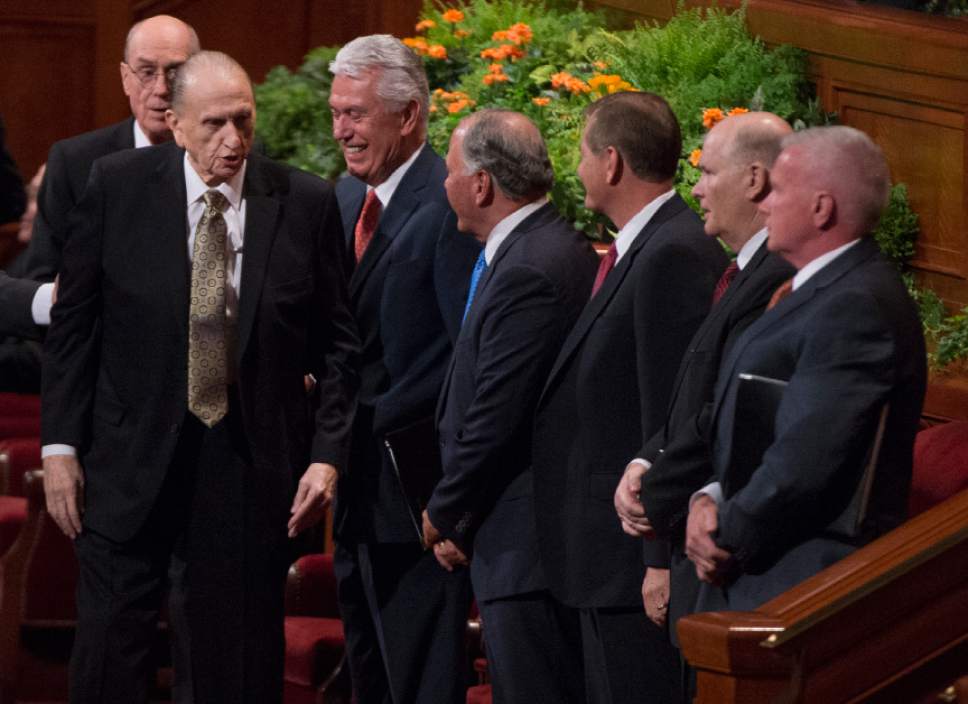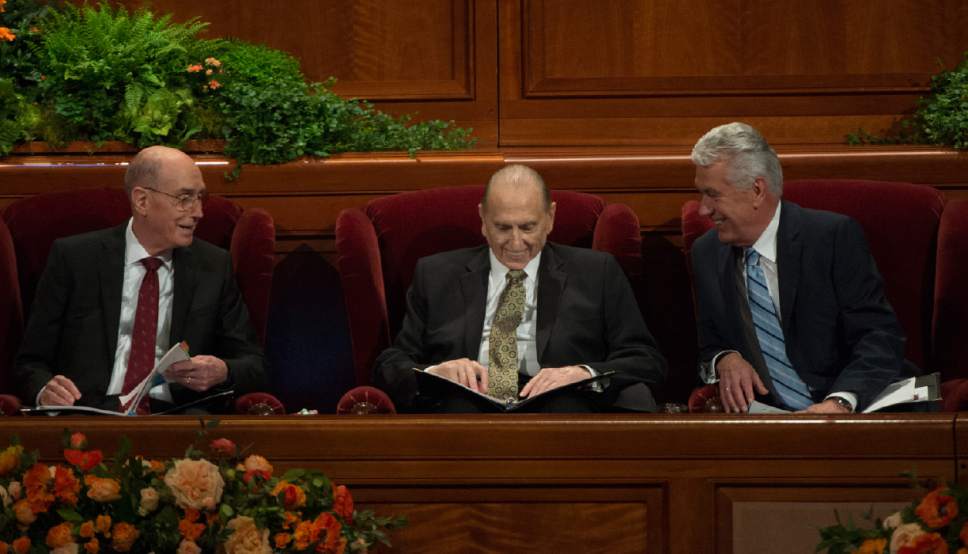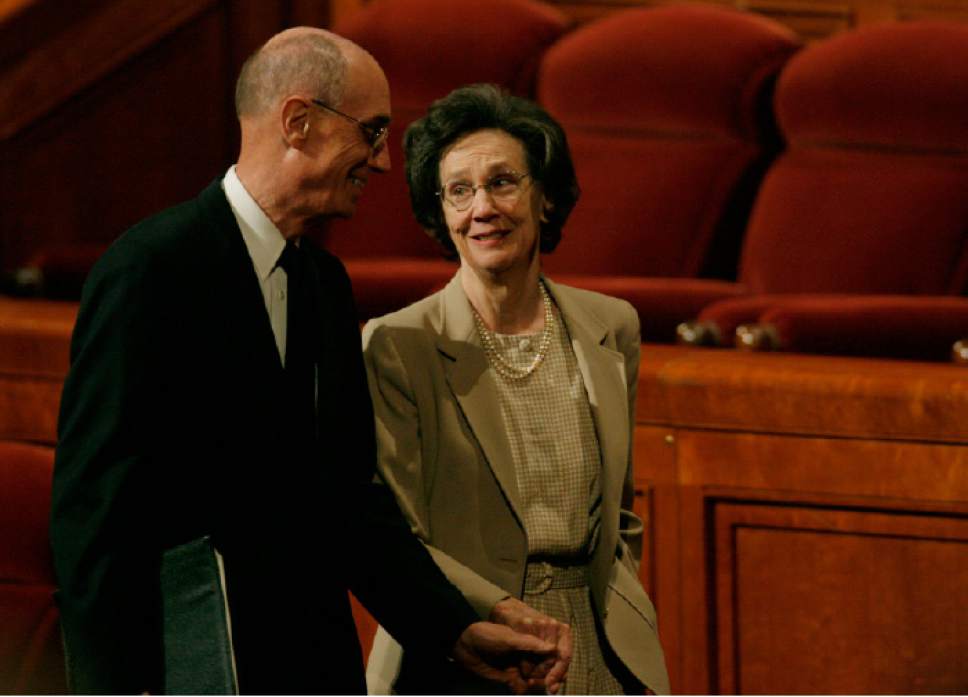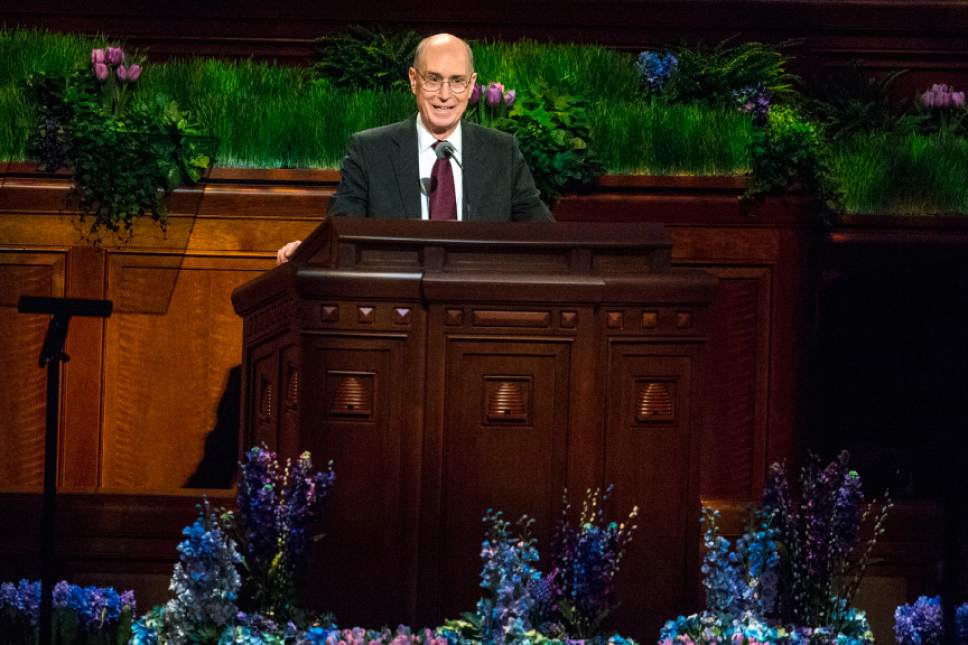This is an archived article that was published on sltrib.com in 2017, and information in the article may be outdated. It is provided only for personal research purposes and may not be reprinted.
Mormons and others who wonder about the salaries of top LDS leaders got a possible peek at those numbers Monday, when purported pay stubs for a high-ranking church official emerged online.
Copies of the biweekly stubs for Henry B. Eyring — then a member of the Quorum of the Twelve Apostles — report that he earned $83,132.75 from the start of 2000 until the first week of December. Two more pay periods at $3,096.15 each would have put Eyring's salary at $89,325.05 for the year.
The 16-year-old records were posted by MormonLeaks and show Eyring's biweekly salary broken down into a living allowance ($2,192.31), parsonage or clergy housing, ($826.92) and a child allowance ($76.92).
A second newly leaked document, from a more recent year, is a 2014 memo from the church's Presiding Bishopric (which handles all financial issues for the faith), noting that the "base living allowance" for all Mormon general authorities was being raised from $116,400 to $120,000.
It is unclear from the leaked documents what additional income or perks these men might make, including heath care benefits, free cars or book royalties.
LDS Church spokesman Eric Hawkins declined to confirm the salary numbers Monday, while defending the payment of full-time ecclesiastical leaders.
"General authorities leave their careers when they are called into full-time church service," Hawkins said in a statement. "When they do so, they focus all of their time on serving the church and are given a living allowance. The living allowance is uniform for all general authorities [including First Presidency, Quorum of the Twelve Apostles, First and Second Quorums of the Seventy and Presiding Bishopric]."
No funds for this "living allowance," the spokesman said, "come from the tithing of church members but instead from proceeds of the church's financial investments."
Many of those 109 men in the top tiers of The Church of Jesus Christ of Latter-day Saints — including Eyring — attended elite schools such as Harvard, Stanford, Yale and the University of Chicago and built successful careers as college presidents, lawyers, surgeons and CEOs.
Religious historian Jan Shipps, who is not a Latter-day Saint but has studied Mormonism extensively, was astonished at how relatively low Eyring's living allowance was — even for one more than 15 years ago.
Many university presidents and even some faculty make much more, said Shipps, who taught American religious history in Indiana for years. "Compared to their pay, this is small potatoes."
A Methodist pastor of a middle-class congregation in the Midwest, she said, "is paid a $138,000 base salary plus a parsonage allowance."
Clergy at the local level in Mormonism serve as volunteers at no pay.
Ryan McKnight, a former Mormon in Las Vegas who posted the documents to his new MormonLeaks website (formerly MormonWikiLeaks), stands by the numbers.
"I don't want to get into what we did to authenticate the documents," McKnight said in a phone interview. "We cannot guarantee 100 percent they are real, but we are very confident that they are legitimate."
Previous Mormon materials leaked through McKnight, including widely circulated videos of briefings given to LDS apostles, have proved to be credible.
McKnight defends posting the purloined documents — despite the fact that they contain private information.
"I didn't ask for them; they were sent to me anonymously," McKnight said. "I am not aware of what the law is in that case."
He, for one, is not taken aback by the salary amounts, but does argue that the Utah-based faith should be more open about its finances.
"We are interested in transparency, pure and simple," he said. "Let the public decide whether this reflects positively or negatively on the church."
Kenneth Lines, another former LDS believer, wasn't surprised by the salary of general authority Seventies, but did think that apostles and the three-member First Presidency "made triple that."
Lines, a data analyst in Salt Lake City, doesn't begrudge Mormon leaders their compensation. He just wants the church to be honest about it.
Some of Lines' friends have relatives who are LDS general authorities and "knowing the time they put into their roles, I'd actually say they are underpaid," he wrote in an email. "However, these same friends are proud to say their relatives are not paid ... which I think is dishonest."
Unbelievers with family still in the faith, Lines said, "just want to see a more honest, forthright religion that doesn't seek to hide its finances and actions from its membership."
Twitter: @religiongal


